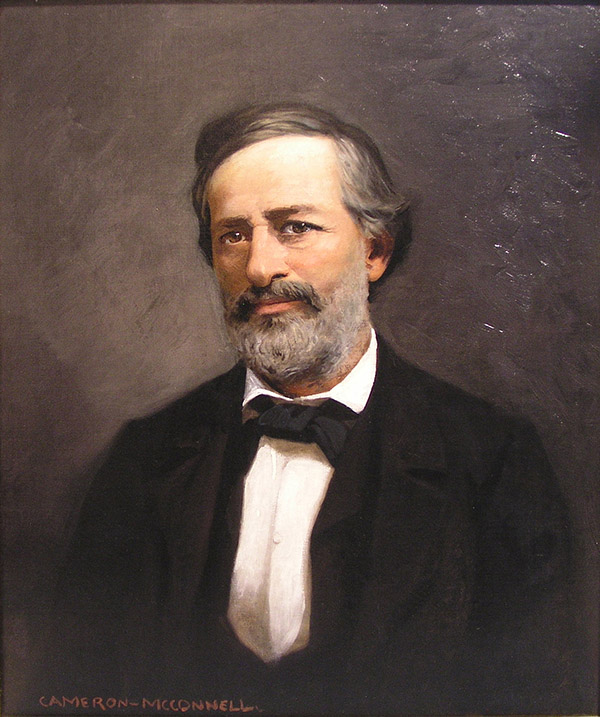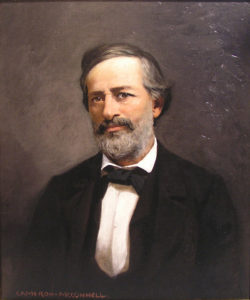William B. Hyman
William B. Hyman served as the chief justice of the Louisiana Supreme Court from 1865 to 1868.

Courtesy of The Law Library of Louisiana
William B. Hyman. McConnel,Cameron (Artist)
William Bryan Hyman was the fourth chief justice of the Louisiana Supreme Court, serving in that capacity from April 1, 1865, through November 1, 1868, during the tumultuous years of Reconstruction. In 1865, following the South’s defeat in the Civil War, Hyman’s friend and ardent Union supporter from Rapides Parish, Gov. James Madison Wells, appointed him chief justice of the state’s highest court, which was under federal jurisdiction. Although Hyman was regarded as a man of great learning, his loyalties were questioned in the hotbed of politics during Reconstruction, and he never overcame those suspicions. In an article for the Journal of Southern History, Barnes Lathrop concluded that “the surviving evidence, coming mostly from Hyman’s friends, tended to make him out to be a man who had been troublesome to the Confederate authorities but had turned against the cause only after he was virtually forced into disloyalty.”
Hyman was born on April 30, 1814, in Williamston, North Carolina, the son of Samuel Hyman and Ann Gray Bryan. He graduated from the University of North Carolina in 1839 and was admitted to the bar in North Carolina that same year. By 1840 he had moved to Rapides Parish, where he established a large and successful law practice and served several terms as parish judge in Alexandria before the Civil War. He strongly opposed secession and eventually swore an oath of allegiance to the United States when Alexandria was occupied by the Union Army. After the army retreated, Hyman abandoned his home in Alexandria and moved to New Orleans.
When the Louisiana Supreme Court was reconstituted in 1868, Hyman was not reappointed. In 1871 he was appointed judge of Jefferson Parish and served until April 1880, when the Constitution of 1879 abolished the parish system. In his later years, Hyman was the surveyor for the Port of New Orleans. Hyman married Hermenegildo Dolores Gonzales of Alexandria on June 14, 1847, and they had five children. His son, Thomas McCabe Hyman, was the clerk of the Louisiana Supreme Court from 1891 to 1909.
Hyman died at Camp Parapet, Jefferson Parish, on August 9, 1884, and was buried in Carrollton Cemetery in New Orleans. Legal historian Henry Dart has described Hyman as “an amiable, easygoing, rather indolent man, full of whimsies and odd ideas. His life had been devoted by choice to the unpopular and underdog side. This was not a pose but a quality of disposition.
